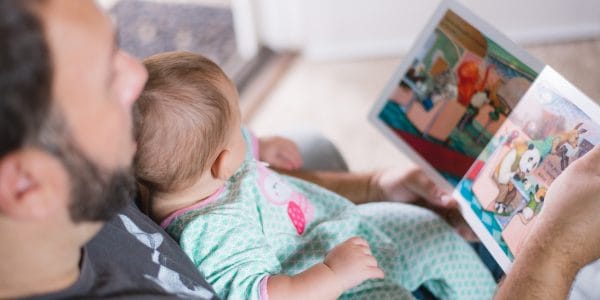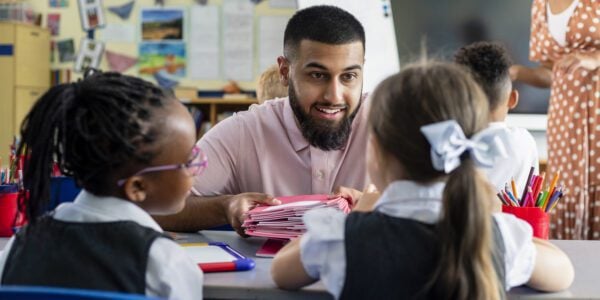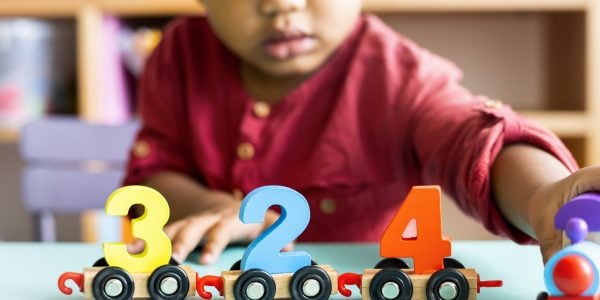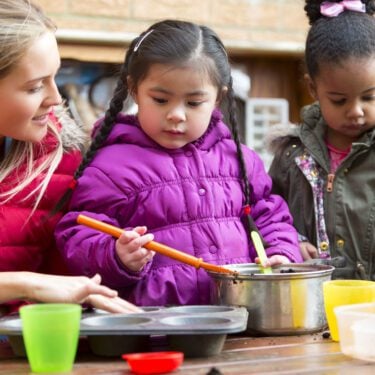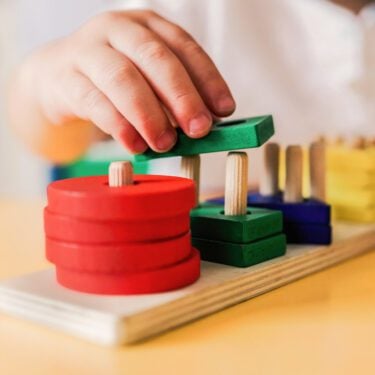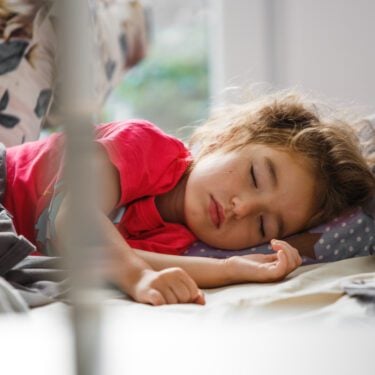
14/12/21
4 min read
Progress in reducing health inequalities for children under five in the UK has stalled in recent years and these inequalities have been exacerbated by the COVID-19 pandemic. Dr Ingrid Wolfe, Director of the Institute for Women’s and Children’s Health at King’s College London, explains how a proportionate, universalist health service could address health inequalities in the early years.
The state of early years’ health today
The COVID-19 pandemic has been tough on the UK’s children — not just for their education but for their health too. Children’s mental and physical health have been impacted by repeat lockdowns, reduced health services, and an economic downturn following a period of austerity. The pandemic has cast a harsh light on the inequalities that UK children face and worsened the conditions for poor health with a vicious circle of poverty, hunger, and insecure housing. Data from the Child Poverty Action Group shows that 31% of UK children were living in poverty in 2019-20, which equates to 9 children in a classroom of 30. This is even higher for families with a child under five where the child poverty rate is 36%.
The Nuffield Foundation’s recent evidence review shows that children are – in general – healthier than they were 20 years ago. This is good news. We know that children are experiencing a better start in life in many ways, with, for example, increased vaccination rates and reductions in infant mortality, albeit variably, and less so in recent years.
The bad news is that progress in reducing health inequalities has stalled. Infant mortality remains 30% higher than the median rate among EU 15+ countries, the UK has one of the lowest exclusive breastfeeding rates among high-income countries, and there has been no progress on reducing childhood obesity. The pandemic has exposed the challenges of providing an equitable approach to healthcare. When resources are tight, health services inevitably become more reactive, focusing on acute care. Prevention and early intervention take second place, entrenching health inequalities and making the problems worse long-term.
A particularly concerning trend is that improvements in young children’s health have been unequal; children in deprived areas have experienced less benefit than those in more affluent areas. The health and survival of more affluent children is improving, but for children living in poverty, life chances are often worsening.
The change that is needed
The slowdown and the uneven improvement in children’s health over the last twenty years reflects a systemic failure. We can do better by preventing ill health, providing early intervention, and improving health care for children. Marmot’s COVID-19 review urges us to “build back fairer” in the face of the profound challenges that society faces. Besides poverty reduction and a stronger social safety net, we should provide smarter services. We need a system-level approach, leveraging data to support clinicians to deliver more predictive, proactive, and personalised care for children.
A new approach to children’s health and social care at local level is needed, to ensure that the children who most need care are the first – not the last – to get it. This requires an approach that integrates services and systems, enabling better coordination amongst GPs, paediatricians, health visitors, school nurses, and social workers. A systems-led approach to improving healthcare outcomes has been successfully tried in two of the most deprived areas of London.
The CHILDS Framework: a model to deliver a proportionate universal service through an integrated system
A real-world approach to better care is being experienced by children in Southeast London. Families that live in the London boroughs of Southwark and Lambeth experience some of the highest levels of deprivation in England; around 30% live in poverty. Poverty and poor health are linked and interact to worsen each other. Children with health problems often have mental and emotional problems, and their families experience social and economic hardships. Children need these problems to be considered together in a whole child approach to health.
The CHILDS (Child Health Integrated Learning and Delivery) approach to services, was designed by clinicians and researchers working with families, and enables early intervention care for children who need it most. Health inequality reduction is achieved through better use of real-world data, a holistic approach to children’s health care, and local integrated services with early intervention and expertise delivered close to home. By leveraging NHS real world data and using advanced analytics we can actively identify children who would benefit from more targeted care, and gain a deeper understanding of their physical, mental, and social health needs. The ambition is to reduce health inequalities and improve health outcomes for children through scaling this approach.
Smarter use of data enables personalised health care delivered by expert Local Child Health Teams. Since prevention is better than cure, all children experience care that includes health promotion and supported self-management. Care is delivered in familiar settings: GP surgeries, schools, children’s centres, and continues to respond to the child’s needs. There is emphasis on learning between clinicians, researchers, and families, so that the service continuously improves.
The CHILDS Framework approach has delivered impact. Early results show a 50% reduction in emergency health service use for children with long term conditions. The number of children experiencing severe asthma symptoms has reduced from 52% to 28%. It has also saved the NHS money. The CHILDS approach achieves savings by reducing acute care activity, once 30-40% of children with asthma receive early intervention in the community. Scaling up coverage and adapting the framework to provide early intervention and care for more conditions and risk factors are the next steps for delivering improved health and cost savings. Finally, and importantly, CHILDS has led to improved access to early intervention and care for children from the most deprived areas.
The opportunities we must seize
The CHILDS Framework provides a model for an effective integrated care system for young children. We can help kick-start improvements in early years’ health and get back on track in our work to reduce health inequalities to benefit the UK’s poorest children. Integrated Care Systems can build on this work by delivering a more integrated approach to care across GPs, paediatricians, specialists, health visitors, child carers, and early years education providers, and by leveraging Population Health Management tools and methods to ensure a proportionate universalist service for children.
As a country, we must rebuild a better, more equitable health system that delivers care proportionate to need. We know how to do this — now we need to act. In light of the impact of the pandemic on young children’s health, we need to ensure a renewed focus on driving system change by building data, research, and stronger health system capabilities that enable smarter care for children, so that we can reduce inequalities in access to health care and help give children a better start in life.
About the author
Dr Ingrid Wolfe is Director of the Institute for Women and Children’s Health, at King’s Health Partners. She is a Consultant in Paediatric Population Health at Evelina London Children’s Hospital and a Reader in Paediatrics and Child Health at King’s College London. Ingrid leads a clinical research team working to improve child health through strengthening and applying science in children’s health services, systems, and policy.

